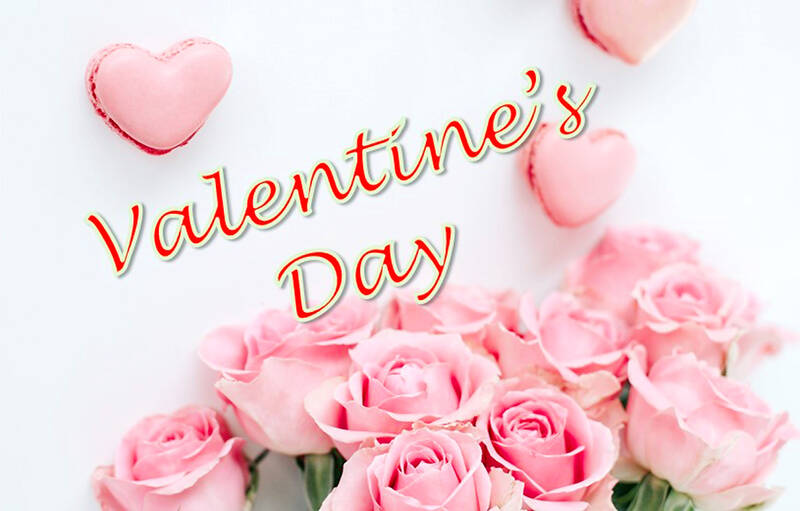對話 Dialogue
小龍:大衛,情人節你送女朋友什麼禮物?買沒買玫瑰花?
Xiǎolóng: Dàwèi, Qíngrén Jié nǐ sòng nǚ péngyǒu shénme lǐwù? Mǎi méimǎi méiguī huā?

Photo courtesy of Unsplash 照片︰Unsplash提供
大衛:沒有,我送她巧克力餅乾,她喜歡吃的東西。
Dàwèi: Méiyǒu, wǒ sòng tā qiǎokèlì bǐngān, tā xǐhuān chī de dōngxi.
小龍:那華人的情人節呢?你打算送什麼?
Xiǎolóng: Nà Huárén de Qíngrén Jié ne? Nǐ dǎsuàn sòng shénme?
大衛:什麼?還有一次?
Dàwèi: Shénme? Hái yǒu yí cì?
小龍:是啊!在農曆的七月七號,也叫「七夕」。
Xiǎolóng: Shì a! Zài nónglì de qī yuè qī hào, yě jiào “Qīxì.”
大衛:(唉)好吧!夏天再來想辦法,麻煩你記得提醒我,謝謝。
Dà wèi: (Āi) Hǎo ba! Xiàtiān zài lái xiǎng bànfǎ, máfán nǐ jìdé tíxǐng wǒ, xièxie.
翻譯 Translation
Long: David, what did you buy your girlfriend on Valentine’s Day? Did you get roses for her?
David: No. I gave her chocolate cookies. She likes food.
Long: Well, how about Chinese Valentine’s Day? Do you have any plans?
David: What? Chinese Valentine’s Day?
Long: Yes. It’s on July 7 according to the lunar calendar. We also call it “Qixi.”
David: (Sigh) OK. I will think about that in summer. Don’t forget to remind me again, please. Thank you!
生詞 Vocabulary
1. 情人節 (Qíngrén Jié) Valentine’s Day
2. 禮物 (lǐwù) gift
3. 玫瑰 (méiguī) rose
4. 餅乾 (bǐngān) cookie
5. 打算 (dǎsuàn) to plan
6. 農曆 (nónglì)) lunar calendar
7. 記得 (jìdé) to remember
8. 提醒 (nónglì) to remind
教材音檔 Audio Files
國立清華大學華語中心提供
By National Tsing Hua University Chinese Language Center: https://clc-cc.vm.nthu.edu.tw/home/

A: I love December. There are always so many concerts to attend at the end of the year. B: I just went to Bigbang member Tae-yang’s Taipei concert last weekend, and it was awesome. A: And I went to the weekend concerts at Christmasland in New Taipei City, featuring Tae-yang’s wife Hyo-lyn and various artists. B: Taiwanese superstars A-mei, Mayday, and Hong Kong superstar Aaron Kwok will also stage shows starting this week. A: It’s so hard to decide. Which one do you want to go to? A: 我好喜歡12月,因為每到年底總有許多演唱會! B: 我上週才剛去過BigBang太陽的台北演唱會,超精彩。 A: 我也剛去過新北歡樂耶誕城的演唱會,太陽的老婆孝琳還有來表演唷。 B: 台灣天后阿妹、天團五月天、香港天王郭富城等巨星的演唱會從本週起也將陸續開唱。 A: 真難決定,你想去哪一場? (By Eddy Chang,

If you’ve ever seen detailed photographs of Paris’s Notre Dame cathedral, you may have noticed a striking feature of the building: large, circular windows divided by intricately arranged stonework radiating out from a central point like flower petals. The stonework encases colorful stained-glass windowpanes full of Catholic icons and symbolism. Called a “rose window,” this adornment can be found in cathedrals across Europe, although the style was most popular in France. The rose window is a key element of “Gothic architecture,” a highly ornate style of architecture popular from Europe’s High Middle Ages to the Late Middle Ages, roughly

A: Among all the concerts, I’m in highest anticipation of A-mei’s. B: Me too, as she will become the first female singer to hold concerts at the venue. A: And she will stage five shows total, on Dec. 21, 22, 28 and 29, as well as the 31st, New Year’s Eve. B: We were so lucky to get the tickets for her New Year’s Eve show. A: Yeah! It’ll be super exciting to count down to the New Year with A-mei. A: 在這麼多演唱會中,我最期待阿妹的大巨蛋首唱。 B: 我也是,她可是首位在大巨蛋舉辦演唱會的女歌手呢。 A: 而且她將會嗨唱5場︰12月21、22、28、29日,跨年夜31日。 B: 幸好我們有搶到跨年夜的門票。 A: 對啊,能和阿妹一起倒數太興奮啦! (By Eddy Chang, Taipei Times/台北時報張聖恩)

US president-elect Donald Trump has said he plans to end birthright citizenship as part of his promised crackdown on immigration when he becomes president on Jan. 20. Below is a look at US birthright citizenship and Trump’s legal authority to restrict it. WHAT IS BIRTHRIGHT CITIZENSHIP? Anyone born in the United States is considered a citizen at birth, which derives from the Citizenship Clause of the 14th Amendment, which was added to the Constitution in 1868. The amendment states: “All persons born or naturalized in the United States and subject to the jurisdiction thereof, are citizens of the United States and of the